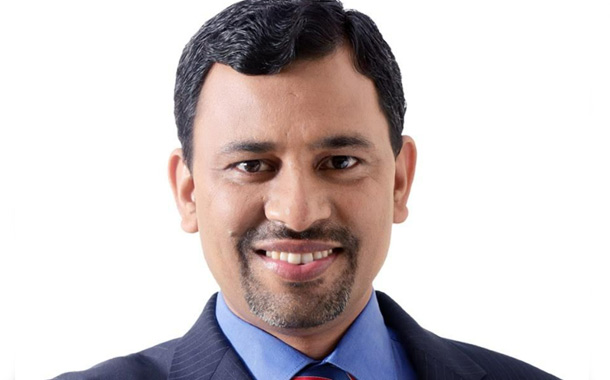With a lot of attacks surfacing in recent times, channel partners who are dealing in cyber security products needs to grow up and enhance their skills to MSP. It is not only the requirement of the market but also the natural progression for a partner. Sunil Sharma, Managing Director- Sales, Sophos India speaks to SME Channels about how Sophos is supporting the partners to become MSP.
[quote font=”tahoma” font_size=”13″ font_style=”italic” color=”#262626″ bgcolor=”#f9f9f9″]
“Growth and profitability are keystones to every MSP. However, a common issue with MSPs is that they grow too much, too fast without the proper tools in place to sufficiently support their client environments.”
Sunil Sharma,
Managing Director- Sales,
Sophos India
[/quote]
Tell us something more about MSPs- how can companies that do not have the required personnel or tools to protect themselves count on MSPs to do the job for them?
Managed Service Providers (MSPs) are invaluable resources that provide human skills and technology for businesses of any size to improve their security posture and the day-to-day technology needs. MSPs remotely monitor computers, servers and networks, provide proactive patch management, and leverage technology to help an organization reallocate resources to revenue generating activities.
MSPs that sell security services can help organizations combat threats like exploits, ransomware and other sophisticated threats by deploying a comprehensive cybersecurity strategy that emphasizes multiple layers of protection. Endpoint detection and response (EDR) provides the first layer of defence against modern day attacks, and a set of trained human eyes, such as from a managed threat response service, provides the second layer.
MSPs are equally important for both SMBs and enterprises. MSPs have recently become more ingrained and pivotal to SMBs, with some even rising to the level of a “virtual CIO” for some clients. We also see larger organizations in the mid-market now turning to MSPs to help “co-manage” their endpoints and networks, which is a fantastic symbiotic relationship.
How can organisations build up a next-gen MSP framework for their businesses?
The trick is differentiating in what a next-gen MSP provides in order to rise above the competition. The key areas that can help to build such framework are:
- Be a virtual CIO
A successful MSP will be able to provide both high-level and user-level guidance that the client needs, acting as a resource for the answers, software, hardware, and more. - Be a service differentiator
MSPs can meet the modern client’s needs by being constantly available, wherever they are through a SaaS-based management console. - Be a financial differentiator
The old paradigm of annual contracts for vendor services is no longer efficient. If MSPs bill their clients monthly, they should be able to pay their own bills monthly. - Be a proven security differentiator
MSPs should ensure their tools provide top of the line protection and provide customers with the education needed to make best use of these tools. - Be an efficiency differentiator and pass that efficiency on to clients
MSPs should minimize the number of security vendors that they partner with to speed up, streamline, and improve the efficiency of the unique tools they use to provide protection. Work with a security vendor that owns all the technology licensed through them, which can be a much more efficient option than a “marketplace.”
What are some of the concerns around MSPs and how can these be effectively addressed?
MSPs are traditionally SMB organizations themselves and can struggle to find the appropriate resources required to deliver security services and deliver them quickly. It has been a challenge for MSPs to operate successfully in this new and far more complex computing environment.
To cover full range of services, MSPs normally work with multiple vendors, which is never easy as they have to manage so many things in different set ups and contracts. Another problem is the billing process conflict; MSPs charge their clients per month, but most vendor services are perpetual licenses rather than monthly, preventing MSPs from managing billing processes consistently.
With Sophos’ comprehensive portfolio of services, its MSP security program gives endpoint, server, firewall, mobile, encryption, web, email, and phishing simulation capabilities through a single vendor partner—no more chasing down multiple vendors and juggling numerous contracts. And, because all these products fall under the Sophos umbrella, they are fully integrated for enhanced protection, allowing MSPs to offer a stronger, safer level of security.
Tell us more about Sophos Central and how it empowers MSPs to offer more efficient, effortless protection?
Growth and profitability are keystones to every MSP. However, a common issue with MSPs is that they grow too much, too fast without the proper tools in place to sufficiently support their client environments. In order to achieve growth and high profitability, MSPs need to employ automation wherever possible and should have synchronization between products. A cloud based management console such as Sophos Central allows MSPs to effectively and efficiently protect clients by combining a full breadth of protection that covers endpoint, network, mobile, Wi-Fi, email, encryption, and cloud. All of these functionalities from one console reduce vendor management overhead and increase time with clients or prospects. Sophos Central combines the power of many different security products to function as one using synchronized security. With Sophos Central, MSPs get a single, intuitive management dashboard to manage multiple client installations, respond to alerts, manage licenses, and track upcoming renewal dates.
Would you agree that automation will allow MSPs to increase their operational efficiency? If so, how?
Absolutely, automation will help MSPs increase their operational efficiency. Furthermore, automation will increase their revenue and lower their costs by eliminating manual activities, such as billing and alert management. Part of the Sophos MSP Connect strategy is to integrate with other vendors in the MSP ecosystem for billing, alerting, ticketing, and ongoing management.


